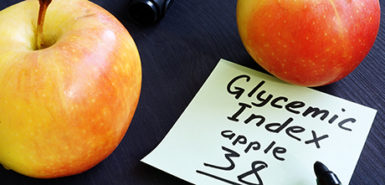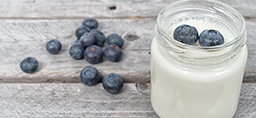
You’ve cut back on calories and you keep count of your steps throughout your day to make sure you hit the magic number of 10,000.
Still, you get on the scale in the morning and find the number creeping up.
Why?
According to the developers of the GOLO diet, established in 2009, our inability to lose weight and maintain weight loss has to do with insulin resistance.
Insulin is a hormone our bodies produce naturally in the pancreas. It allows cells to uptake glucose, or sugar, from the foods we eat, converting it to a form our cells can use as energy or store for later use.
Insulin helps keep blood sugar levels from getting too high (hyperglycemia) or too low (hypoglycemia).
When insulin resistance develops, cells no longer convert glucose efficiently.
Insulin resistance can lead to Type 2 diabetes, high blood pressure, high cholesterol and obesity.
But is it true?
GOLO diet developers say they have a solution to insulin resistance. The diet is based on taking a supplement, called Release, with each meal.
The supplement, they say, is a combination of plant extracts and minerals that reverses insulin resistance.
Natasha Peoples, NP-C, NCMP, a certified family nurse practitioner who specializes in midlife and menopause health at Spectrum Health, considered the premise of the GOLO diet.
“Managing blood sugar does have some merit,” Peoples said. “Cutting out simple carbs from our diets can be beneficial. Simple carbs are what we call white foods—foods such as pasta, white flour, sugar, white rice, white bread.
“These types of foods can create a spike in our blood sugar followed by a crash,” she said. “So if you eat a carb, make it a complex carb, such as whole grains, sweet potatoes, or brown rice, and for every carb you eat, I’d recommend eating a protein to keep your blood sugar steady.”
Using a supplement for weight loss? Peoples is skeptical.
“I would never recommend one specific supplement as a means to weight loss,” she said. “Probably the best thing you can do, rather than using a supplement, is just to make healthy choices and cut out sugar from your diet.”
Kristi Veltkamp, MS, RND, a registered dietitian with Spectrum Health, agrees.
“Managing blood sugars, or using the glycemic index, can be a good idea,” Veltkamp said. “The glycemic index measures how quickly a certain food raises our blood sugar, but that can be deceptive. For instance, although processed foods do tend to have a higher glycemic index, watermelon can have a glycemic index as high as a donut.”
Rather than adhering to the glycemic index, Veltkamp, too, recommends cutting out processed carbohydrates and sugars from our diets.
Not all carbs are bad
We shouldn’t demonize carbs, Veltkamp said.
“Our bodies need carbs, too, and that can include fruits, potatoes, squash,” she said. “What we want to eliminate are the added sugars, not the natural ones. Eat those types of carbs in their natural forms.”
Veltkamp offered an example: “The typical bottled orange juice from the grocery store shelf has a lot of sugar, mostly natural but sometimes with added sugar. Because of the processing of the orange into juice, you lose the fiber and end up eating way more sugar than you would when eating a whole orange. It would take four oranges to make two cups of juice. No one eats four oranges at once!”
“Same idea with grains,” Veltkamp said. “Look for intact grains such a brown rice rather than white. Steel-cut or rolled oats rather than flavored packets. Whole grain bread rather than white.”
Rather than a fad diet, such as the GOLO diet, Veltkamp recommends the Mediterranean diet. It’s based on fruits, vegetables, whole grains, beans, nuts and seeds and healthy fats.
“The Mediterranean diet is well-researched,” Veltkamp said. “It’s a lifestyle change and you can follow it long-term. A diet isn’t any good if you can’t stay on it long-term for good health.”
Our bodies tend to tell us what we need to eat for health, simply by the types of foods we crave, Veltkamp said.
But she warns against the cravings for sugary foods and junk foods.
“Sugar and junk food tend to have addictive properties,” she said. “They can trigger dopamine and serotonin in our bodies, the feel-good chemicals that make us crave more even when we aren’t really hungry.”
Whole foods best a pill
Rather than taking supplements, Veltkamp advises getting the vitamins and minerals we need by eating whole foods.
“I’m a proponent of eating right rather than taking a vitamin,” she said. “There can be properties in our food that our bodies need in order to absorb the full benefits.
“Taking a fish oil pill has not been shown to be very helpful for heart health, but eating wild fish is,” she said. “Some vitamins and antioxidants in pill form may actually be more harmful than good.”
Supplements and vitamins are not well-regulated and labels can be deceiving, Veltkamp said.
At the very least, a consumer should look for the NSF or USP seal on the bottle, a voluntary certification to verify purity and accurate labeling.
“Without some level of regulation, a vitamin or other supplement may even be contaminated,” Veltkamp said. “There can be wide discrepancies between one bottle or brand and another. The only exception I might make is D3, as we don’t have a lot of exposure to sunlight in Michigan winters.
“But we need to be careful with that, too, to not take too much,” she said. “Eating right is always the best choice and checking with your doctor or dietitian to ensure you need and are taking supplements properly.”
 /a>
/a>
 /a>
/a>
 /a>
/a>